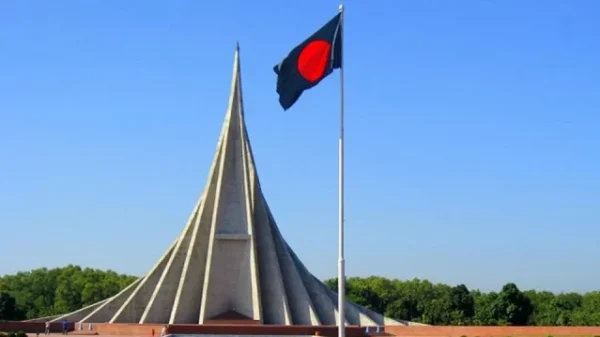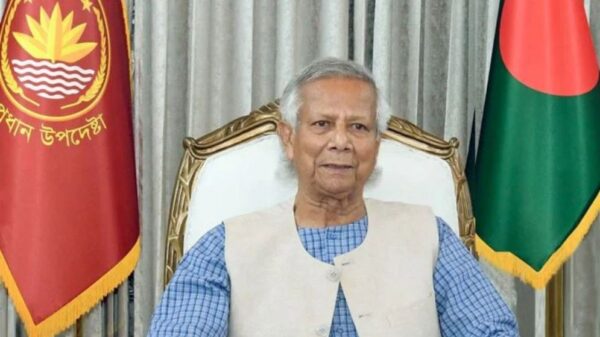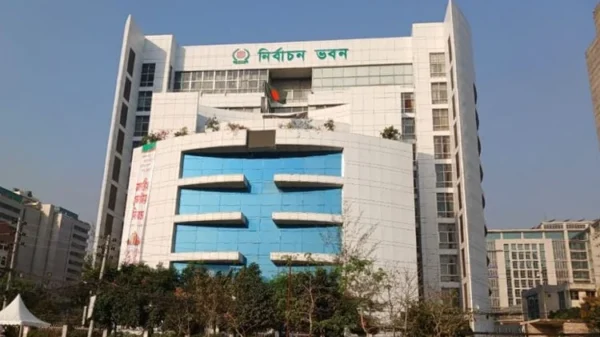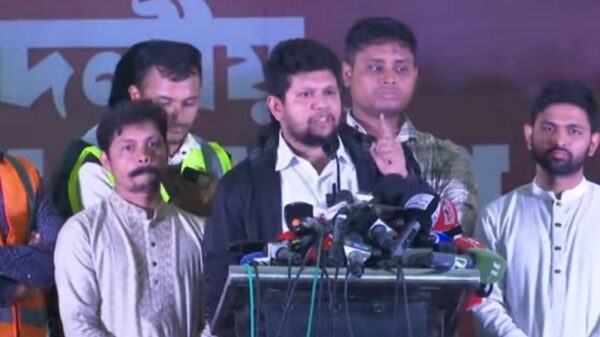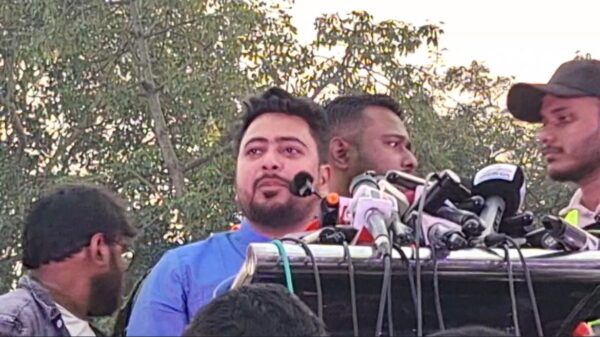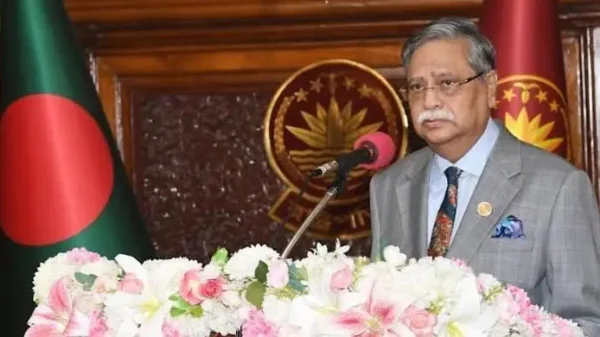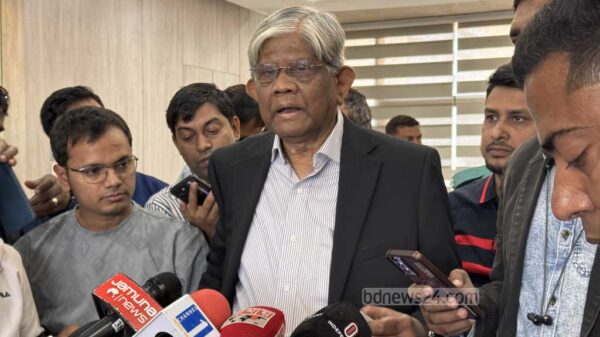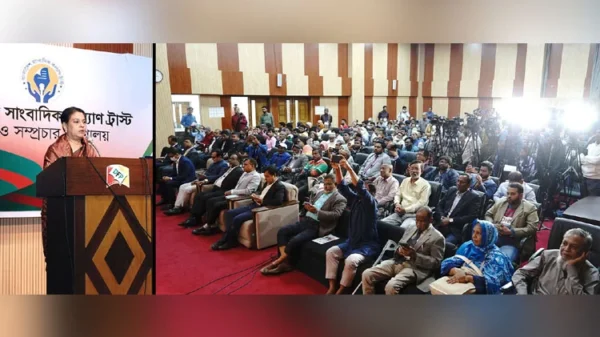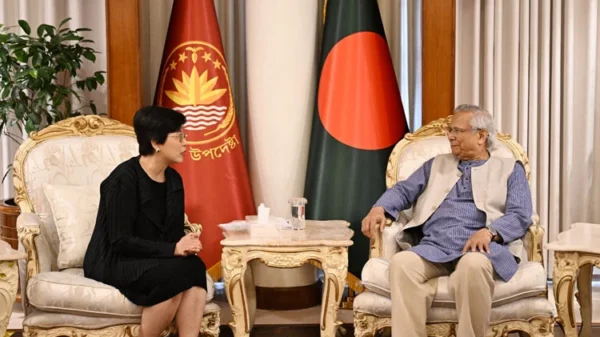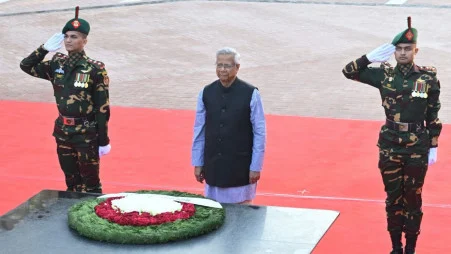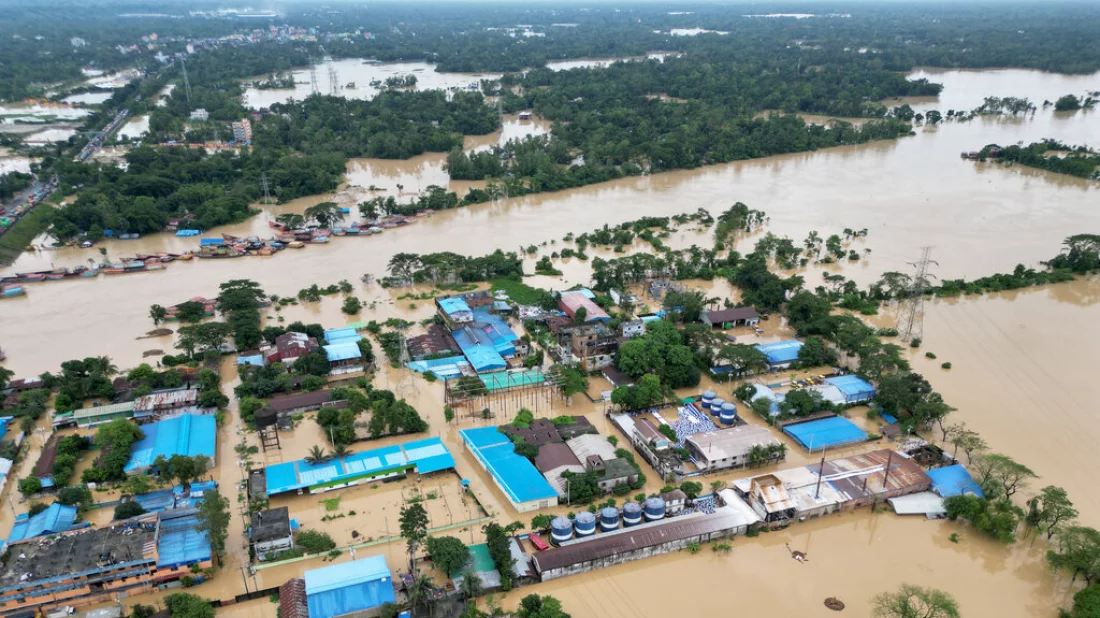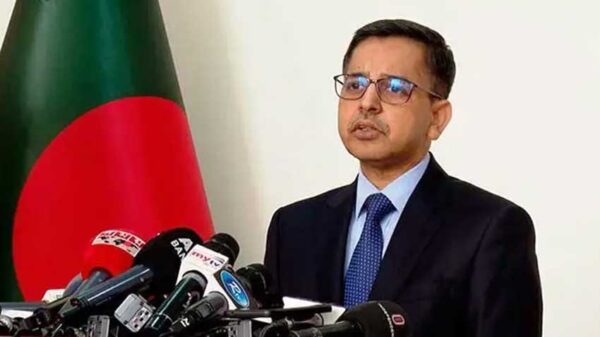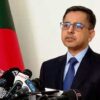Staff Reporter:
Recent flash floods in Bangladesh, triggered by heavy rainfall and upstream water flows from India, have wreaked havoc across 11 districts in the eastern regions of the country.
According to a report released by the UN office in Dhaka on Friday, citing the National Disaster Response Coordination Center (NDRCC), around 5.8 million people in the northeastern and southeastern regions have been affected, with over 1 million people stranded in communities cut off by the flooding.
The report indicates that 502,501 people have been displaced and are currently taking shelter in 3,403 evacuation centers.
The most severely affected districts include Noakhali, Comilla, Laxmipur, Feni, Chittagong, and Moulvibazar.
Floodwaters have submerged rural roads, agricultural fields, and fishponds, severely disrupting essential access and livelihoods. A total of 339,382 hectares of crops have been completely destroyed.
Over 7,000 schools have been forced to close due to flooding, impacting the education of 1,750,000 primary students across the affected districts.
The displacement and overcrowded conditions in temporary shelters have raised significant protection concerns, particularly for women and girls.
The flooding of water, sanitation, and hygiene (WASH) facilities across affected areas poses serious health risks and heightens the threat of water-borne diseases.
Access to affected areas has been further hampered by submerged rural roads and electricity outages. In Noakhali, more than 50% of the affected areas remain unreachable by local authorities and frontline responders.
With minimal access to markets, most agencies have been compelled to provide in-kind support to the affected communities.
The UN and humanitarian partners are mobilizing targeted, multi-sectoral emergency activities to support the government-led flood response and to complement local and CSO efforts in assisting the most vulnerable flood-affected people and communities.
Partners are actively mobilizing both internal and external resources to address the crisis.
The Start Fund has allocated £428,755 in response to flash flooding in Feni, Noakhali, Cumilla, Khagrachari, Moulvibazar, Chattogram, and Laxmipur Districts in Bangladesh. Other partners have also mobilized internal emergency funds.
On July 14, the humanitarian community in Bangladesh launched its first-ever multi-hazard humanitarian response plan (HRP) for cyclones and monsoon floods, targeting 1.2 million people.
The HRP seeks $79.8 million in funding; however, as of now, agencies have reached around 700,000 people with humanitarian assistance, raising only $15.6 million, which is just 19.2% of the required funding, the report stated.


